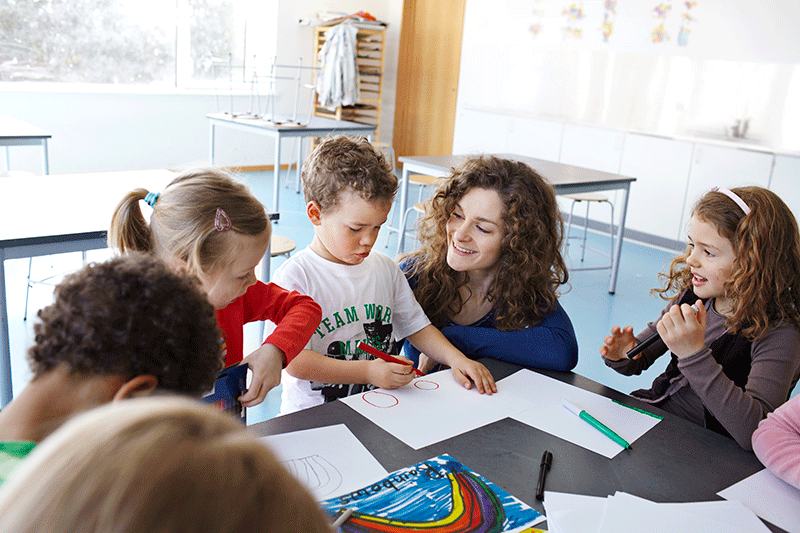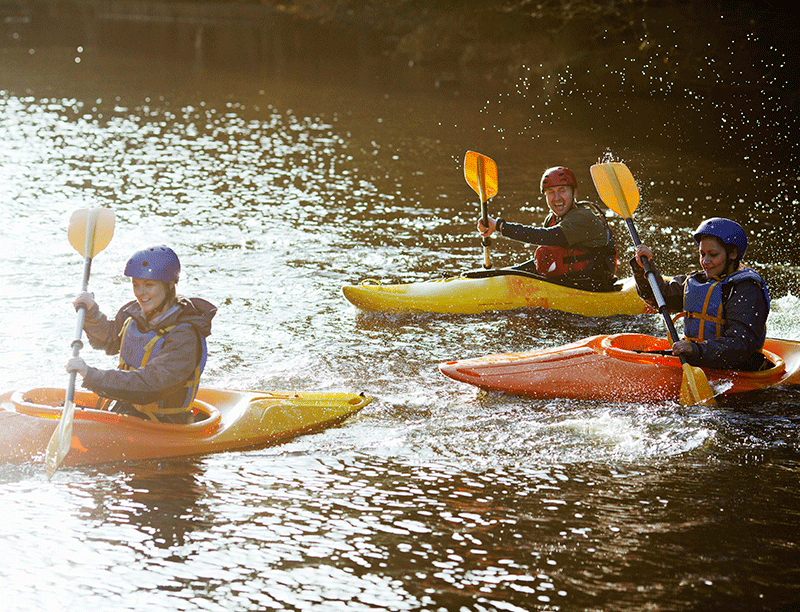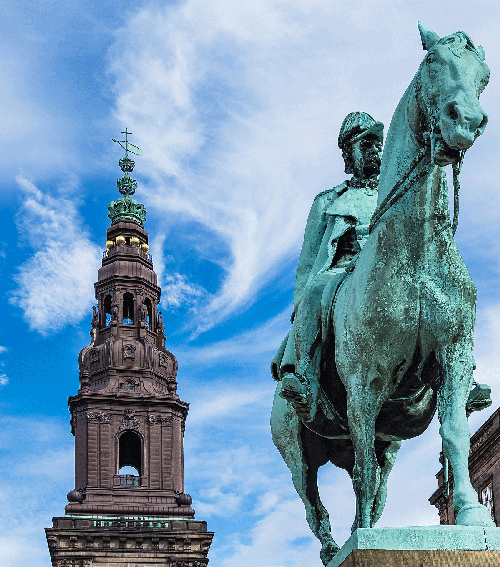Denmark has eight universities, nine art and performance institutions including the Royal Academy of Fine Arts, and eight university colleges that award professional bachelor degrees in areas like nursing and teaching. That is pretty impressive for a country with only 5.9 million people!
Lifelong education
From daycare to primary schools: An emphasis on social skills
Danish children begin public daycare as early as 9 months, and by age 3, 98% of children in Denmark are attending public kindergartens. Staffed by professionals with training in early childhood education, these institutions teach basic academic concepts like letters and numbers, as well as social rules like taking turns and helping others. Most of the day is spent on "free play" and activities outdoors.
At age 6, Danish children begin their formal schooling. The educational approach in Denmark avoids class rankings and formal tests; instead, children work in groups and are taught to challenge the established way of doing things. Teachers are called by their first names. The emphasis is on problem-solving, not memorisation.
All children in Denmark have access to tuition-free government folkeskole (people's school) until they are 16 years old. Some parents choose private schools because they are smaller, or because they have a particular educational approach.
Others choose private schools for religious reasons: Denmark is home to Jewish, Christian, and Muslim schools. English-language international schools and French and German-language schools are also available on a paid-for basis. All schools are required to follow the national government's basic requirements for primary education.

Choosing a secondary education: Academic or trade school?
Near the end of their time in primary school, Danish children take a nationwide test to help them choose the next step in their education.
Pupils with strong academic abilities often select a gymnasium for their secondary education, where they can focus on languages, sciences, math or similar subjects to prepare them for university.
More practically-oriented pupils often prefer a trade school that can train them in high-paying skills like metalworking, electrical technology, or mechanics, or a business school where they can learn about accounting or software development.
Other pupils delay the decision for a year, choosing an efterskole (after school) where they live away from home and study topics of interest like theatre or sports alongside their academic requirements.
Universities and "getting paid to go to school"
Once they have completed their secondary education, Danes can choose from a variety of tertiary options, including a standard university that grants bachelors, masters', and PhD degrees; a university college that awards bachelors degrees in hands-on subjects such as social work; or a public arts and architecture academy, like The Royal Academy of Music.
Full-time students in Denmark are eligible for Statens Uddannelsestøtte, or SU (limited income support) from the government alongside other work they do to help pay their expenses while studying.
It is common for Danes to begin working in their future job roles while they are still in the process of education, either as an intern, by having a relevant student job or as a paid apprentice.
Did you know
Lifelong learning for fun and profit
Education in Denmark does not stop with graduation; at any given time, one out of three Danish adults age 25-64 is taking some kind of continuing education course.
Many Danish workplaces pay for their employees' additional training, and there are also public and private providers of classes that help build business and professional skills. Unemployed people in Denmark are often required to take courses that will prepare them to return to the job market.
Denmark's public and private investment in the development of new qualifications and skills is one of the highest in Europe. The idea is to maintain a highly-qualified and well-educated workforce that can succeed in a global knowledge economy.
Of course, not all education is for professional reasons. Many adults in Denmark take classes in cooking, painting, foreign languages, music, or dance just for fun. A lot of these classes are publicly funded and offered for a minimal fee.


"Folk high schools": A fundamental part of Danish culture
Adult education is nothing new in Denmark: since 1844, folkehøjskoler or højskoler (folk high schools) around Denmark have helped ordinary people develop the skills they needed to thrive as citizens.
The schools were inspired by the influential Danish educational leader Nicolai Grundtvig (1783-1872), who believed that offering higher education to rural people was as important as cultivating the urban intellectual elite. Grundtvig's ideas were widely copied in other Scandinavian countries.
These days, there are 75 højskoler around Denmark, many specialising in subjects like film, design, sports, theatre, and politics.
The schools are voluntary and require no grades or exams. Many offer "live-in courses" for a week or more, and while they are not tuition-free, prices are low and the cost of attending includes room and board.


